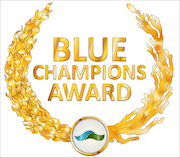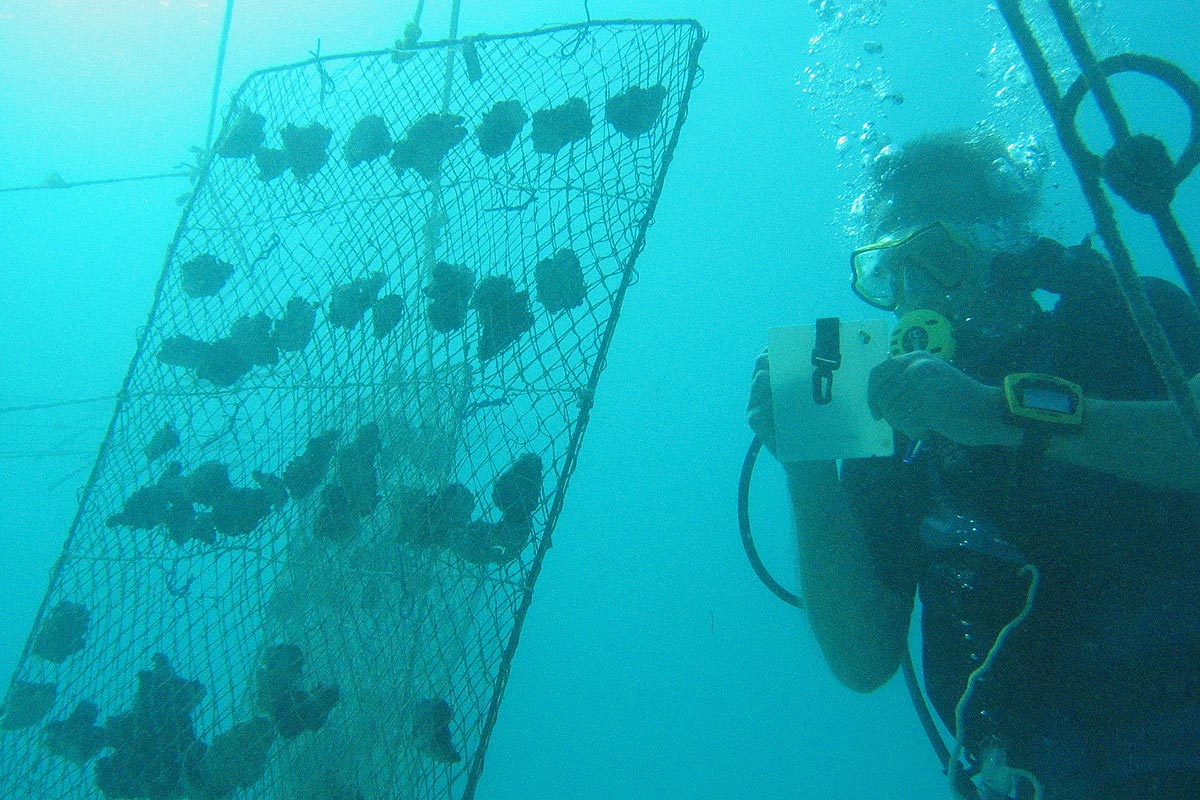Sponge Farming – Toward Self-Employment
24.12.2015
We did it! In spite of a challenging rain season, the production and sales of Key’s and Nasir’s sponge farm in 2015 were significantly higher than the cost of salaries and materials. The two farmers even raked in an incentive bonus. Our business model is working.
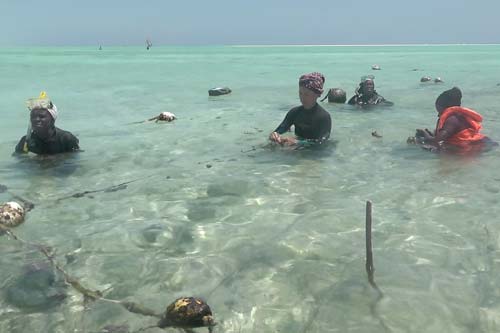
f.l.t.r. Key, Connie, Nasir, Muzne
In light of their achievement, the two single mothers are now being transitioned to self-employment. They now own their own farm with 3,000 sponges and have the know-how necessary to operate it. The local sales channels are in place and enough seedlings can be drawn from the existing sponge stock to make the farm truly sustainable. This is likely a first in the world.
This is a big success for us. We now have proof that our efforts and investments of the last few years are paying off. In other news, Muzne, a 19 year-old single mother of a one-year old child already has a new farm and in April 2016 we will hire and train an additional farmer. The goal: self-employment by the end of the year. In the autumn of 2016 we are moreover planning to launch a third production farm. The more farms we launch, the more quickly they multiply and the more members of the local population will benefit from this new, sustainable source of income.
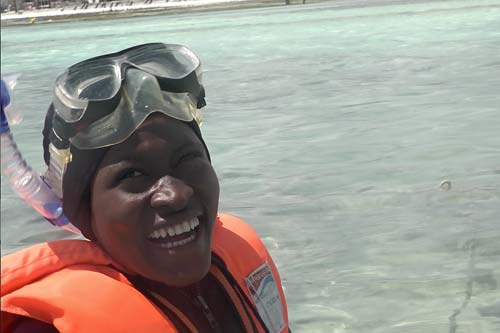
Muzne
When Key and Nasir transition to self-employment we will continue to closely guide them and provide the necessary quality control to enable them to further grow their production. Each of the two farmers needs a monthly income of around $200 to be able to live a decent life. For them, this is a small fortune. Unlike the seaweed farmers, however, whose income is stagnating around $20-$30 a month because of low global market prices for seaweed our two farmers have a bright future ahead.
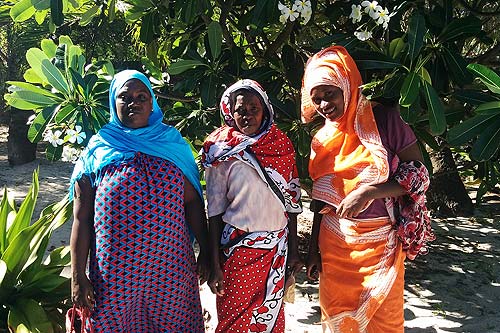
f.l.t.r. Nasir, Key, Muzne
Some challenges remain, however. Our production sponge farm in Mtende on the south coast of Zanzibar has mysteriously failed to thrive. While our sponge species generally does well around Zanzibar, it has in this case not been able to generate good harvests. We suspect an unidentified irritation factor in the environment and are making one last attempt to save farm with our farmer Suleiman. However, if this last effort does not produce results, we will unfortunately have to discontinue the Mtende project.
Setbacks are to be expected, however. We are therefore all the happier that our work with the Jambiani women has successfully resulted in the development of a new form of aquaculture – and a sponge species that isn’t cultivated anywhere else in the world.

